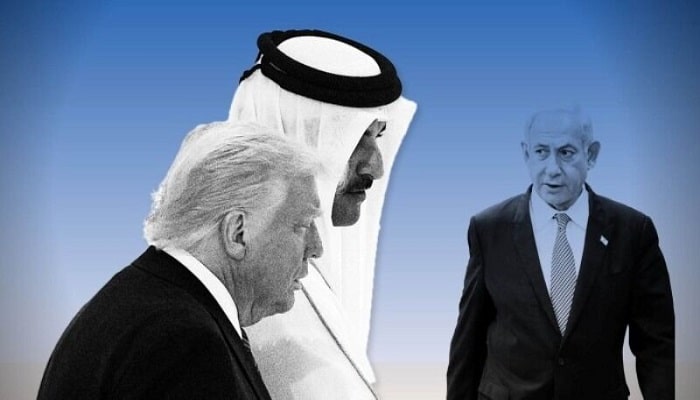PNN – Western analysts, referring to Donald Trump’s signing of an unprecedented executive order providing security support to Qatar after Israel’s attack on Doha and claiming that this will be a factor in changing the balance in the region, say that this agreement is symbolic, non-binding, and vague.
According to the report of Pakistan News Network, from the perspective of Western analysts, the signing of a new executive order by US President Donald Trump, which commits the United States to defending Qatar against any attack, is considered an unprecedented development in Washington’s relations with its Arab allies. This decision was announced after the Israeli regime’s airstrikes on the residence of Hamas leaders in Doha, and simultaneously provoked widespread reactions at the regional and international levels.
The Pakistani website “Business Recorder” reported that, according to the text of the decree, “any armed attack on Qatar is considered a threat to the peace and security of the United States,” and that the United States is committed to using all legal and appropriate means – including diplomatic, economic, and, if necessary, military – to defend its interests and those of Qatar in the event of an attack.
According to the above analysis, although this legal literature is verbally similar to collective defense clauses in formal treaties, in essence, it is a “non-binding executive order” that can be repealed by a subsequent president.
Read more:
Some facts revealed by Israel’s aggression against Qatar; a warning to compromisers.
Experts have analyzed the move from several perspectives. Andreas Craig, a professor at King’s College London, believes that the order effectively turns any attack on Doha into a potential crisis for Washington and creates a kind of deterrent against Qatar’s regional enemies, although it gives the United States sufficient leeway to decide how to respond.
Elizabeth Dent, a senior fellow at the Washington Institute and former US Department of Defense official, emphasized the symbolic aspect of the president’s executive order, stating: Although the tone of the order is unprecedented for Qatar, it is not binding in practice and is deliberately written vaguely so as not to commit Washington to direct military action.
Qatar is one of the United States’ closest allies in the Persian Gulf and is home to Al-Udeid Air Base, the largest US military base in the region. The close personal ties between the Qatari ruler and Donald Trump are also seen as a factor in the order, according to the analysis.
In recent months, Qatar has been the target of two attacks: One was by Iran in June, which targeted the US base at Al-Udeid, and the other last month, when Israeli airstrikes on Hamas leaders in Doha killed six people, including a Qatari security officer. The attacks sparked resentment in Qatar and among Gulf Cooperation Council countries that see their security as heavily dependent on US support.
According to Dent, the decree is a “major diplomatic and strategic victory” for Qatar, as it strengthens its position as the main mediator in the Gaza crisis and demonstrates the value that Washington places on Doha’s diplomatic role in regional developments.
On the same day the executive order was signed, a three-way call was held between Trump, Benjamin Netanyahu, and Sheikh Mohammed bin Abdulrahman Al-Thani, in which the Israeli Prime Minister apologized for the attack and promised not to carry out any more attacks.
According to this analysis, it was immediately after this call that Qatar resumed its role as a mediator in the Gaza war, and Trump announced a new plan for the future of the Gaza Strip.

